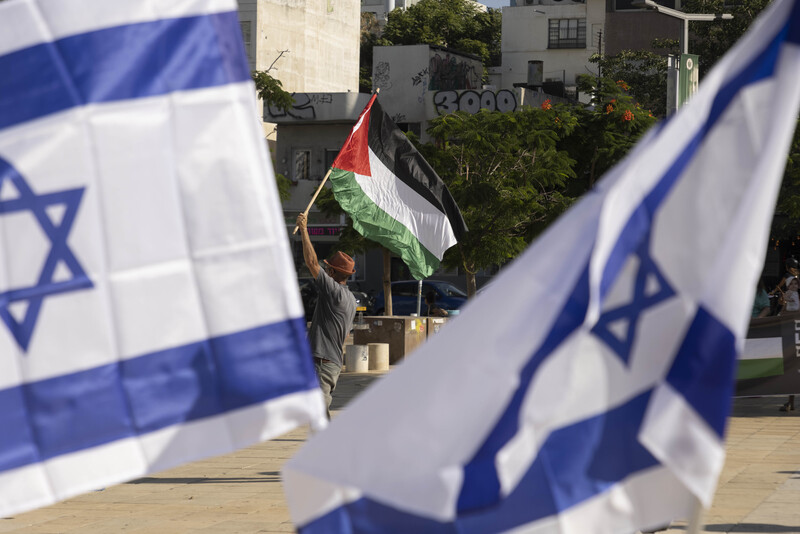Rights and Accountability 28 July 2022

So far only Palestinian citizens of Israel, and none of their Jewish counterparts, have faced citizenship revocation under a 2008 law.
ActiveStillsIsrael’s high court ruled last week that citizenship can be revoked over offenses constituting a “breach of loyalty,” even if doing so renders a person stateless.
The decision provides the state with an additional legal mechanism to strip Palestinians of their citizenship and fundamental rights.
The high court ruling was in response to an appeal by Adalah, a group that advocates for the rights of Palestinians in Israel, and the Association for Civil Rights in Israel.
The two groups were appealing a 2017 court decision approving the interior minister’s move to revoke the citizenship of Alaa Zayoud, a Palestinian from Umm al-Fahm who was imprisoned after ramming his car into a bus station and stabbing three Israelis in 2015.
Israel has not revoked the citizenship of Jewish Israelis involved in serious crimes.
In 1996, Israel’s high court rejected a request to revoke the citizenship of Yigal Amir, who assassinated Yizhak Rabin, the prime minister, one year earlier.
The high court rejected Adalah and ACRI’s argument that Israel’s 2008 “nationality law” was being used in a discriminatory manner against Palestinian citizens of Israel.
That law defines a “breach of loyalty to the State of Israel” as committing or assisting a “terrorist act,” engaging in acts that the state considers treason or espionage, or acquiring citizenship or permanent residency in Iran, Afghanistan, Libya, Sudan, Syria, Iraq, Pakistan, Yemen or the Gaza Strip.
However, according to Adalah, in the 31 cases in which the revocation of citizenship was considered since the law was enacted, none involved a Jewish Israeli citizen.
“There are many cases of Jews in Israel who took part in terror and not even once has the interior ministry thought to appeal to revoke their citizenship,” Oded Feller from ACRI told Reuters.
“The only cases that were submitted to the court were of Arab [Palestinian] citizens,” Feller added.
“Discriminatory”
The Israeli high court acknowledged in its ruling that no comparable law to revoke citizenship exists in any other country, according to Adalah and ACRI.
The revocation of citizenship rendering a person stateless is a violation of international law, as established in the Universal Declaration of Human Rights and various conventions.
“The current case indicates that the law is discriminatory and will likely be used exclusively against Palestinian citizens of Israel,” ACRI and Adalah added.
The high court ruling must be understood in the context of the state’s racist ideology. The 2018 “nation state” law defines Israel as “the national home of the Jewish people” and that the “right to exercise national self-determination in the State of Israel is unique to the Jewish people.”
The ruling should also be viewed as serving Israel’s overall goal of colonizing Palestinian land and pacifying any any and all resistance against it.
Israel is seeking to revoke the permanent residency of human rights defender Salah Hammouri, who was born in Jerusalem and raised there, claiming he “breached loyalty” to the state.
“How can a brutally subjugated and colonized population be expected to pledge loyalty to its occupier?” Hammouri wrote in an op-ed for The Electronic Intifada in 2020.
“Israel has employed various strategies to force a 30:70 ratio of Palestinians to Israeli Jews in the city,” Hammouri noted, referring to Jerusalem. Israel has occupied the eastern sector of the city since 1967 and unilaterally annexed it in violation of international law.
Israel treats Palestinians in occupied East Jerusalem as “permanent residents” – as if they were foreigners who had moved there from abroad, not Indigenous people bearing inalienable rights to live in, travel out of and return to their native city and country.
“Since 1967, it has revoked the residency of more than 14,500 Palestinians from Jerusalem, and thousands more face daily challenges to maintain their residency and existence in the city,” Hammouri noted.
“Vulnerable”
That playbook, long used against Palestinians in Jerusalem, is now being applied to Palestinians with Israeli citizenship.
Writing for Middle East Eye, Lana Tatour observes that “the court has cleared the way for what would become the routine denaturalization of Palestinians with Israeli citizenship, making them vulnerable to deportation, something Israel has long aspired to.”
Tatour adds: “The decision to substitute citizenship with a so-called permanent residency status might enable individuals to continue to have access to some social services, but it strips them from the utmost protection that citizenship is designed to grant: the right to remain at home.”
Tatour notes that more than 150 Palestinians were charged with terrorist offenses in the aftermath of the unity uprising in May 2021.
Now, Tatour writes, “all of them face the threat of having their citizenship revoked. Palestinians know all too well what this could potentially mean: expulsion from their homeland.”
Expulsion from their homeland is a fate shared by millions of Palestinian refugees and their descendants who are barred from returning by Israel solely because they are not Jewish.
Now Israel’s high court has approved one more tool in the state’s arsenal to pursue its single organizing principle: the removal of native Palestinians so they may be replaced by foreign Jewish settlers.






Add new comment